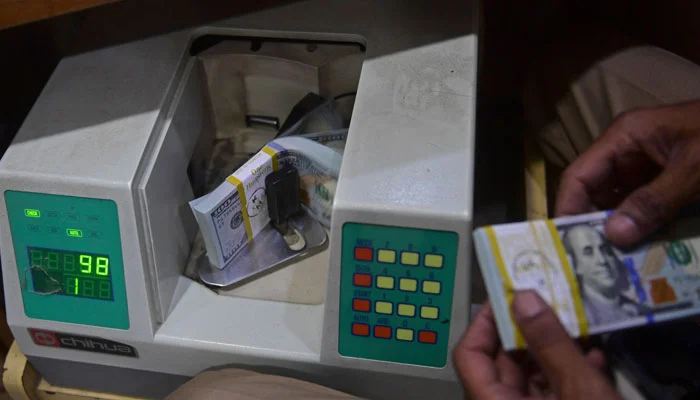Business
Rupee takes a hit against dollar in interbank market
-

 Latest News16 hours ago
Latest News16 hours agoThe team’s failure to capitalize against India is acknowledged by Mohammad Rizwan.
-

 Latest News16 hours ago
Latest News16 hours agoPakistan Provides Gaza With 100 Tonnes Of Crucial Aid
-

 Latest News16 hours ago
Latest News16 hours agoAlibaba pledges to invest $53 billion in cloud computing and AI by 2027.
-

 Latest News15 hours ago
Latest News15 hours agoMore than 10 energy projects are nearing completion in Khyber Pakhtunkhwa.
-

 Latest News16 hours ago
Latest News16 hours agoSeven Khwarij are killed by security forces in Dera Ismail Khan.
-

 Business16 hours ago
Business16 hours agoAfter more than 50 years, Bangladesh and Pakistan resume direct trade.
-

 Latest News16 hours ago
Latest News16 hours agoFor a two-day official visit to Azerbaijan, the PM arrives in Baku.
-

 Latest News15 hours ago
Latest News15 hours agoImran Khan is the sole former Prime Minister to undergo a judicial trial. Omar Ayub





















